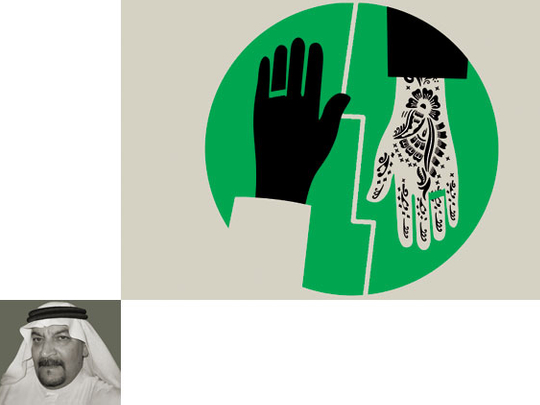
The rate of divorce throughout the GCC is increasing to levels that are certain to alarm most social welfare organisations in each of the member states. From Kuwait to Oman, this phenomena has picked up pace in the last three decades to very distressing levels.
Kuwait released recent figures that showed two out of every five marriages failing within the first year, causing several calls of alarms from both the religious and social activists. In Qatar, according to figures publicly released, the number of divorces per 1,000 married Qataris increased from 17.4 in 1995 to 19.2 in 2009, especially among younger couples. Some social analysts today put the figure closer to 30 per cent.
In the UAE, the Arabic daily Emarat Al Youm reported that according to the most recent statistics, the divorce rates in the Emirates hovers around 36 per cent, causing a major concern among scholars and counsellors on this alarming trend.
And the grand daddy of them all Saudi Arabia was reported as having one of the highest divorce rates, with an average 66 divorce cases a day, according to an item in Al Sharq daily, quoting a social expert, who blamed wrong choice of the spouse and other factors. This roughly translates into a whopping 60 per cent divorce rate.
This brings me to the heart of this week's column. At a luncheon the other day, Salma brought up the alarming rate of divorces among the young, especially those below the age of 25. Salma, a volunteer at a women's charitable organisation is a witness first hand to the trials of such break-ups and at such an early age.
Mass marriages
"Quite often the girls have barely reached past teens, when these separations take place. And already weighed down with one or two toddlers, what are these young mothers to do and with no father around? I see enough of it and frankly it alarms me."
"You know Salma, there probably exist a multitude of reasons for such sorry events, but I can't help feeling that it is often the actions of adults that leads to such unfortunate events." I responded.
"Take for example the much-publicised weddings en masse sponsored by certain organisations to marry off these kids, an event that is usually held every summer. While their intent may be good, these societies through donations and charities focus on the single aim of getting the young and financially destitute married. Judging by published numbers, the wedding day is their feather in the cap. But what follows after that? Where are the financial or social means to support and sustain such a union? Frankly, I reject the concept of such types of assistance," I continued.
"Has the young man the means to prepare for his new family? A stable job and secure dwellings? Does he have the maturity and stability to live up to his new commitments? Do these societies who encouraged such unions ever check up on the harmony of the newly-weds?"
"No, more often than not, after all the wedding hoopla, reality sets in, and it is often harsh. That is one reason why we see more and more of the young males taking this easy road out. They are just not ready to handle being weighed down with this new set of responsibilities. The sufferings of the young wife and the little off-spring may not put much of a dent in their conscience."
"I'll tell you what would be the right way to do it. Let the boy work and save before he gets married. Let him think long and toil hard. And thus when he is sure he is ready to get married, let him sanction it all with his hard-earned money. Sure, a bit of assistance won't hurt, but the bulk of expenses should be shouldered by him."
"While the government today insists on pre-nuptial blood tests to prevent possible genetic conflicts, there must also be an equally strong programme to enrol any prospective couple into a marriage reality course to ensure that each partner knows exactly what they are getting into. Perhaps only then, the ‘I do, I do' words would have some meaningful hope of surviving," I concluded.
Tariq A. Al Maeena is a Saudi socio-political commentator. He lives in Jeddah, Saudi Arabia.









